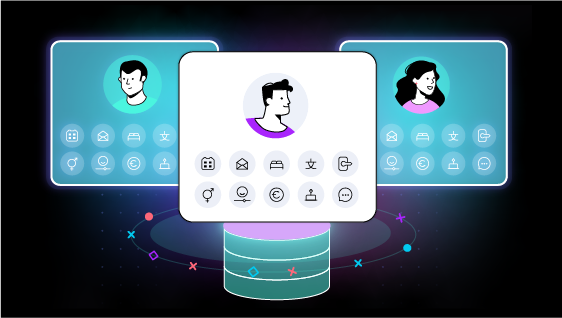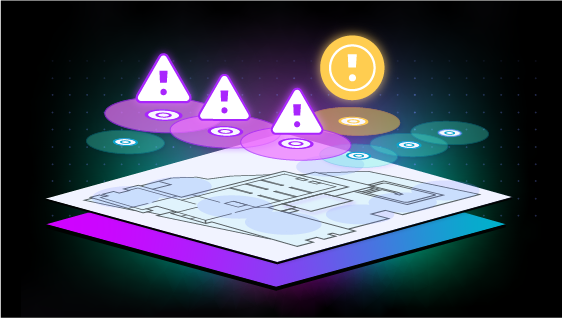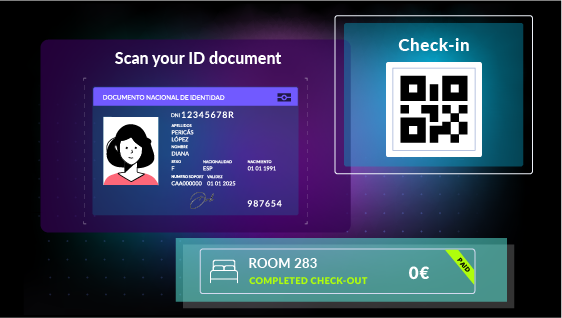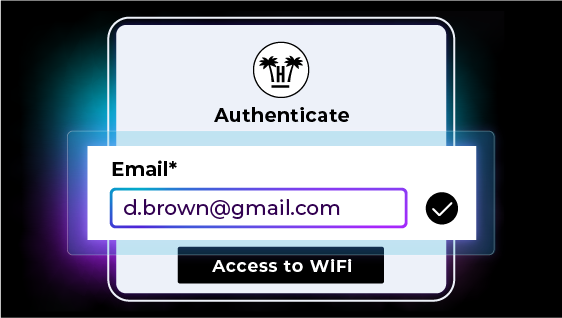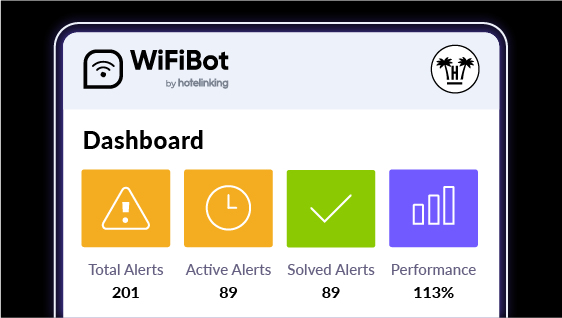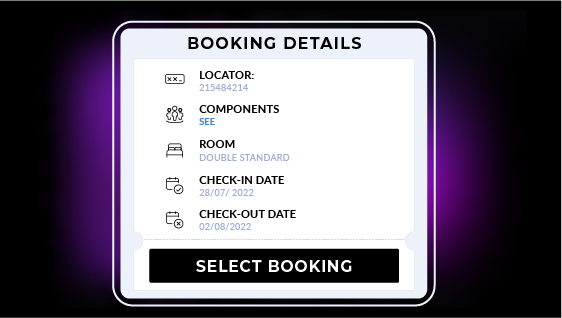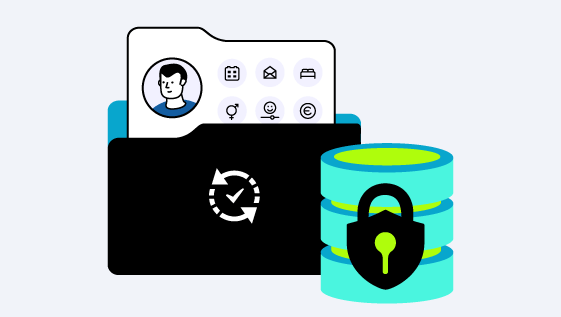
Jimmy Pons: “NFTs are already totally viable real marketing cases.”
Jimmy Pons is one of Spain’s tourism industry’s leading applied innovation experts.
Jimmy has worked on tourism innovation and digital transformation projects in Spain and Latin America for more than 25 years. He has collaborated with different entities including the ICTE (Spanish Tourism Quality Institute) and ITH (Hotel Technology Institute).
Within the tourism industry, he has worked for the Hotels department of the Barceló group, and was Destination Innovation Manager for Rumbo, and Innovation Manager at BlueBay Hotels.
He has also worked as a tutor in business schools including EOI and JSF Travel & Tourism, teaching modules on innovation, digital transformation, sustainability, web3, customer experience and emotional intelligence in tourism.
He is currently researching how sustainable blockchain, cryptocurrencies, metaverses and NFTs will affect the tourism industry.
Jimmy’s extensive professional career reflects his passion and dedication to this industry, as he is always involved in projects or developing initiatives. His most recent mission is the NFT Management System, a tool that allows you to create and manage NFT campaigns.
NFTs, metaverses, tokenisation, etc. What opportunities and benefits can they offer to the hotel industry?
If we go back to the dawn of social media (2005), we can see how many things have changed. 17 years on, we must accept that an evolutionary change is taking place with NFTs, metaverses and tokenisation, all developed with decentralised blockchain technology. This is a natural evolution that has become more and more noticeable over the last 5 years, coinciding with the increase of projects developed using blockchain, leading to an exponential increase in users. If society changes its habits, companies must adapt. Tourism is just like the society in general. If tourism companies want to stand out, they will have to adapt. There is no other way.
The opportunities lie in marketing, customer loyalty, and new financial formats – all tools that will force companies to evolve. Although NFTs were once mainly used in digital art, there are now many use cases that can be applied to the tourism industry, and others: airline tickets, tourist reservations, event tickets, loyalty programmes, customer identity, promotion of sustainability and income for cultural heritage. They can reduce agglomerations in specific points, such as smart collectibles, etc. We have to be aware that this is just the beginning, so the opportunities will be endless once companies begin their journeys into the web3 world.
Working on customer loyalty is essential for all hotels. What value can NFTs, and particularly the metaverse, offer loyalty programmes?
Loyalty is one of the great pending subjects for most tourism SMEs, particularly accommodation properties. NFTs encourage real engagement with guests. The value lies in web3 marketing. We must start planning marketing strategies in a cookie-free world, where social networks as we know them today will gradually become less influential, or where interruption marketing will become increasingly irrelevant over time. This is where NFTs add value by directly connecting with the customer. A metaverse without NFTs would basically be a simple virtual space without soul or emotion.
NFTs can be living elements that evolve depending on where you use them, in the real world or the virtual sphere. For example, if a hotel has 5 restaurants and I want the guest to visit them all, I can create an NFT for each restaurant and when they have tried all of them, they will be awarded a special prize in the form of a new NFT that offers something that other diners do not have. These prizes don’t have to be redeemable in the hotel – they can also be activities that the guest can take part in in the resort they are staying in. This is about starting to define what we can offer customers in exchange for doing things that interest us as companies, using a win-win company-customer formula.
Can smaller chains and independent hotels access these opportunities?
Current loyalty programmes require technology and management that normally only large companies can afford. It’s no longer enough to wish a guest a Happy Birthday and remind them that you miss them because they haven’t visited your website in the last 15 days, offering a discount. The problem that small independent hotels are facing is that the points that customers could get are not very useful. They should therefore belong to a larger and more global project. However, there are currently no tools that have a vision of the future, related to the web3 world. There are only projects with points cards that are already a little outdated and that don’t often reach the younger and more tech-savvy generations. We have Apple and Google wallets, programmes that are integrated within traditional credit cards, or annual fee payment programmes. I think there is not much innovation in terms of offering the customer added value. Going over the points or rewards programmes again and using NFTs could be very interesting, if you combine this with the reports and other types of company.
Where does a hotel or chain that wishes to enter the world of NFTs need to start? Is this a good time despite metaverse’s scant maturity?
Metaverse will still take years to become a reality. NFTs are already real and completely viable web3 marketing cases. If a current company or a tourist destination could go back to 2005, knowing what we now know about how the Internet has evolved over the last 15 years, what would their digital strategy be? Probably very different. We all know that the natural evolution is tokenisation and NFTs, and metaverses will follow in about 5-10 years. Every company or destination must be aware that the sooner they start, the better. This is what the city of Málaga is doing. They are working on an app that integrates NFTs with a very innovative vision, becoming a current benchmark.
The Marketing department and in particular the current Community Manager (or the Communications company that manages the networks) should begin to train and design an NFT strategy and know what tools they need to manage this world that is here to stay. Start discovering what a metaverse is and how it works from the user’s perspective. The sooner you start, the sooner you will be prepared to face the challenges of ‘today’s future’.
Are there tools to manage these projects simply?
Just as we use a Content Management System (CMS) for web content, a Social Media Management System for social networks, or a Marketing tool in Mobile Wallet (Apple or Google), it is clear that to manage NFTs, which is now more relevant, we need a NFT Management System. This allows you to create NFT campaigns quickly, easily and without extensive IT knowledge
The NFT-MS plus a strategy would be like a mixture of past concepts that adapt to the present, including Gamification, smart collectibles, happy hour, donation systems, Pokémon Go, Tamagotchi, crowdfunding, payment systems, loyalty schemes, greenwashing, purchasing systems, likes – all concepts that have now been reinvented and developed using more effective and secure technology, with a sustainable blockchain.
What cultural and organisational requirements or changes should hotels be prepared for?
The department that will have to evolve the most is Marketing and Communications, but first they will have to work alongside IT and then with the Commercial, Finance and Operations departments to establish the correct strategy. All of them will have to see how the operation works in this new environment because it affects every department.
This is a change which generates value for customers, in a constantly evolving Internet setting. It is a change that requires new skills that the company still does not have but will have to prepare for. It’s simple – you have to evolve just like our customers are gradually evolving.
What role will people play among so much technology?
Technology will prevail over humans in many tasks that a machine will be able to do better and more efficiently in a few years. It has always been like this. Blockchain, Machine Learning, artificial intelligence and robotics, etc. will form a new business environment based on technology. This does not mean that humans will disappear in the professional world, just that we will have to adapt and shift to other functions that add value to customers, depending on the type of product that the company offers. Employees themselves have to be responsible for this and prepare for what is coming, “If you work like a robot, you will be replaced by a robot”
I’ve always believed that the more technology there is, the more important humans will be. It’s not good if companies replace humans in everything. However, in the case of tasks that machines can do much better, that are tedious and that rarely make people happy, the use of technology is positive. However, it will all depend on the companies and how they wish to address these challenges.
The hotel buffet got rid of many waiters and perhaps with the current problems that bars and restaurants are facing getting staff, perhaps robotics could be an ideal solution, depending on the tasks required. This means that changes must therefore be made in the organisation, the management and the processes, which is challenging. I believe that most of the sector is not prepared for this innovation. Human beings naturally shy away from the unknown, out of ignorance and fear of change.
What professional profiles and training will be required to launch business models that include NFTs or metaverses?
By natural evolution, the Marketing and Communications departments will have to adapt more quickly, especially the Community Manager, who will also become the NFT Manager. Companies will have to define a strategy that helps generate that engagement with customers, just as they did with web 2.0 and social networks. They will have to rely on everything involved in design or collaborations with digital artists, with the world of culture, local products, craftsmen, etc.
Hotel companies have recently become more aware of their social and environmental impact, which has led them to implement sustainability plans in their properties. Are NFT projects on blockchain compatible with sustainability?
Yes, they’re compatible, as long as they use sustainable Blockchain. However, it would not be compatible to have, on the one hand, a sustainability plan and on the other, a blockchain which is not sustainable, and which has a high ecological impact.
As well as sustainability, there are other aspects that we need to consider: decentralisation, operating costs, security, reliability, etc. There is a website with a summary of the 10 criteria that we should consider when developing web3 projects.
Does the future of tourism lie in the metaverse?
No, the future lies in a hybrid world called ‘Phigital’ (Physical and Digital). I would start burying the word ‘tourism’ and start talking about how customers will enjoy their hybrid leisure time. That’s where the Phigital concept makes the most sense. The challenge is very significant because most companies now talk about digital transformation. However, we are already in a virtual transformation that will blend with the real world, to the point that, in some cases, it will be difficult for us to know where we actually are.
The metaverse will be today’s website and has to be what makes us actually get to know the destination. Here the NFTs and a rewards programme make even more sense because they can encourage you to discover the destination in the real world.
Glossary of terms
- NFT: non-fungible token. This is technology based on ‘blockchain’, that guarantees the authenticity of a file in digital format, and states who its owner is.
- Cryptocurrency: a type of digital asset and an alternative currency. It uses cryptographic encryption to secure transactions, control the creation of additional units, and verify the transfer. These coins do not exist physically and are stored in a digital wallet.
- Difference between asset or token, fungible and non-fungible: A fungible token is something that can be easily exchanged. In this case cryptocurrencies are fungible assets. A non-expendable token (NFT) has unique properties that distinguish it from the rest. They are can only be used once and cannot be divided. They are digital authenticity certificates, which are verified through Blockchain and can be sold in the digital world. It can be any digital object: images in their different formats, videos, character enhancements for video games, baseball cards, even representations of physical goods such as a tree or a phone.
- Blockchain: a network that allows you to record transactions and track an asset within it, without the need for intermediaries. There are millions of teams that are part of this network throughout the world. They are responsible for authenticating and validating all transactions coming from an asset. Each record is a block that is added to the chain and that make up that asset’s family tree.
- Metaverse: this is a virtual world that is accessed through special devices. In this digital universe you can interact with other users and do activities like those in the physical world.
- Web3: refers to the Internet’s next stage of development. Its main feature is that it will be decentralised and transparent and it will use blockchain technology for this.
